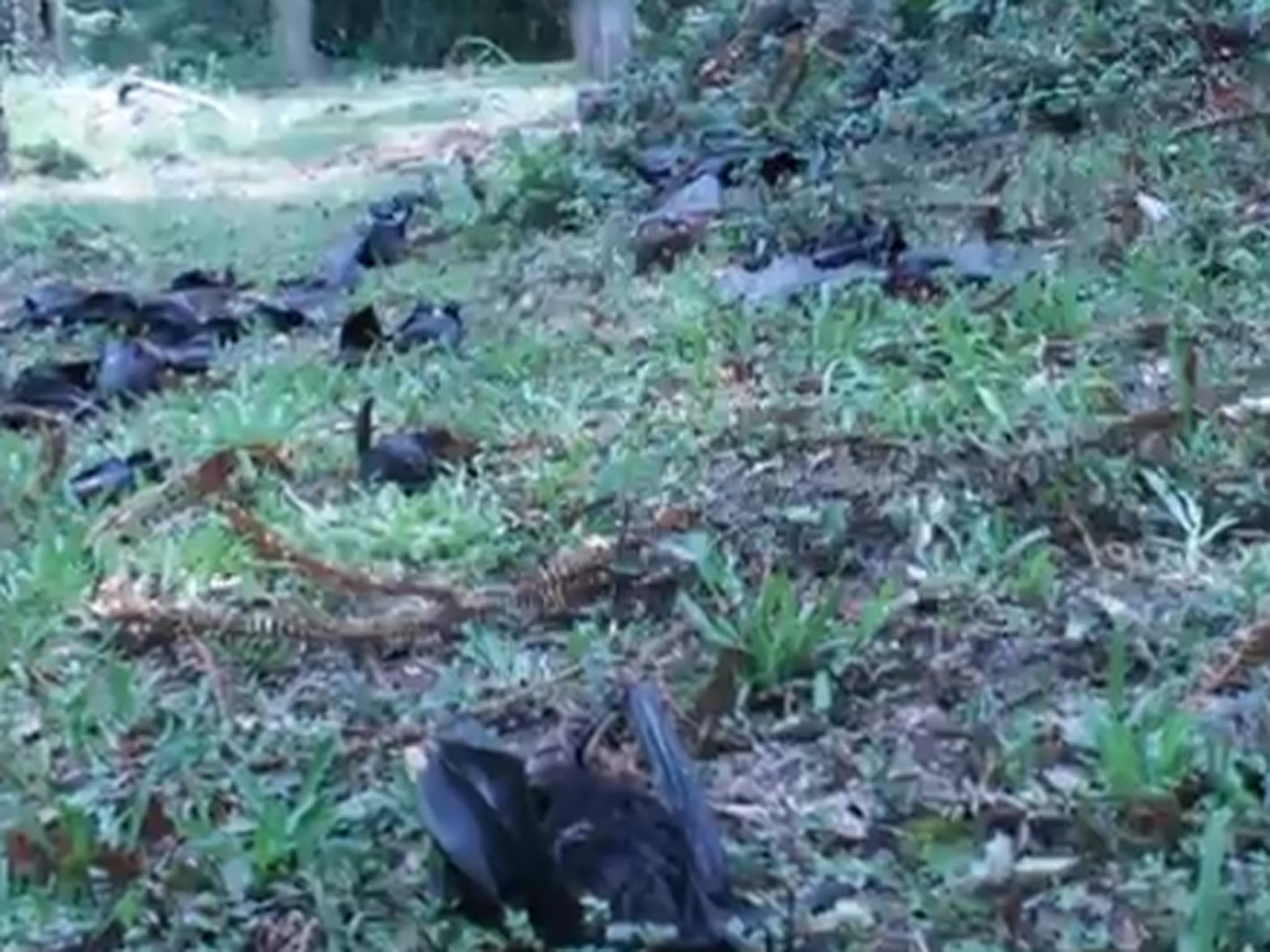It's raining bats: 100,000 rotting carcasses fall from the sky during Australian heatwave
Record temperatures have taken devastating toll on wildlife population

Your support helps us to tell the story
From reproductive rights to climate change to Big Tech, The Independent is on the ground when the story is developing. Whether it's investigating the financials of Elon Musk's pro-Trump PAC or producing our latest documentary, 'The A Word', which shines a light on the American women fighting for reproductive rights, we know how important it is to parse out the facts from the messaging.
At such a critical moment in US history, we need reporters on the ground. Your donation allows us to keep sending journalists to speak to both sides of the story.
The Independent is trusted by Americans across the entire political spectrum. And unlike many other quality news outlets, we choose not to lock Americans out of our reporting and analysis with paywalls. We believe quality journalism should be available to everyone, paid for by those who can afford it.
Your support makes all the difference.Tens of thousands of dead bats have fallen from the sky as a “catastrophic” heatwave hits parts of eastern Australia.
The RSPCA estimated that 100,000 could have died from heat exhaustion in record temperatures in southern Queensland.
Spokesman Michael Beatty says the heatwave was a significant blow to the population of bats across the state.
“The heatwave was basically a catastrophe for all the bat colonies in south-east Queensland,” he said.
“That's obviously going to have a pretty disturbing impact on those colonies and those colonies are vital to our ecosystem.”
The animals’ corpses rot quickly in the heat and councils have organised collections to stop the stench.
Since Christmas, record temperatures of up to 48C have been seen across Australia, hot on the heels of the country’s hottest year on record.
Louise Saunders, president of Queensland’s Bat Conservation and Rescue group, said the bats cling to trees and urinate themselves before dying in a desperate bid to reduce their body temperatures.
She added: “As they succumb, they just fall in heaps at the base of trees.
”You can have 250 or more — it's like dripping chocolate — all dying at the base of trees.
“It's an enormous animal welfare concern.”
The extreme heat has also killed birds and animals.
In Winton, where the song “Waltzing Matilda” was written, a large number of parrots, kangaroos and emus have been found dead in the parched landscape.
Additional reporting by Associated Press
Join our commenting forum
Join thought-provoking conversations, follow other Independent readers and see their replies
Comments